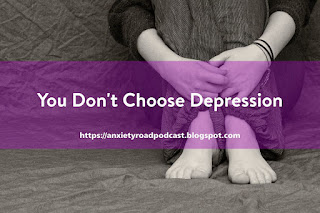This podcast has always talked about treatment options and resources. I always will.
And sometimes that includes talking about uncomfortable things. Or boring things, things so boring they make your eyes glaze over.
This is definitely true cuz I have been known to go long winded. But if this helps you in your treatment process or understand possible resources process, I'll do it.
Because that episode that you cut off after four minutes might be the one you come back to a year from now. It happens.
My intent is to be respectful. I might slip up on that. If I don't catch it in the editing process then I will have to own up to it. I have my own opinions and biases.
My intent is to be informative with viable, and authoritative sources. You can agree with them or disagree. That is your choice.
I need to do this because someone I don't know needs to know this information. If you don't need it or think it is a waste of time, then tune out.
In this episode, some news items about accessing treatment. It isn't good news but you do need to know why trying to find help is even harder than before the pandemic.
Resources Mentioned:
Column from the Washington Post called The pandemic could drive another national health crisis, GAO warns: Anxiety. For our oversees folks, the GAO is the Government Accountability Office.
The actual report from GAO Highlights GAO-22-104437 goes deep into who and what populations are affected.
The New Your Times Well section "We Surveyed 1,320 Therapists, and the News Isn’t Good" The story is behind a paywall.
From California Take Action 4 Mental Health site, downloadable Understanding the Spectrum of Mental Health PDF about how to have a better idea if you are in trouble or in the danger zone.
If you need support contact the National Suicide Prevention Lifeline at 1-800-273-8255, the Trevor Project at 1-866-488-7386 or text “START” to 741-741.
If you need support contact the National Suicide Prevention Lifeline at 1-800-273-8255, the Trevor Project at 1-866-488-7386 or text “START” to 741-741.
Disclaimer:
Links to other sites are provided for information purposes only and do not constitute endorsements.
Always seek the advice of a qualified health provider with questions you may have regarding a medical or mental health disorder.
This blog and podcast is intended for informational and educational purposes only. Nothing in this program is intended to be a substitute for professional psychological, psychiatric or medical advice, diagnosis, or treatment.

























